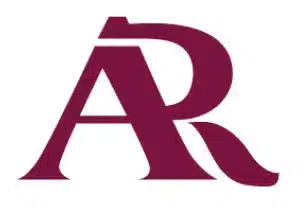Prescription Drug Addiction Myths

Prescription Drug Addiction Treatments
Table of Contents
Overview
Although some of the most abused substances, these are not the only abusable prescription drugs. Opioids, benzodiazepines, sedatives, and stimulant drugs, also add to annual addiction cases.
Scope of Prescription Drug Addiction
Data from 2017 showed more than 18 million people over age 12 had misused prescription medications in the last year. That equates to approximately 6% of the United States population. Although current data is not available, it is likely safe to assume, based on historical information, that these numbers have only continued to rise over the last few years. 2What Is a Prescription Drug?
Prescription drugs are strong medications often used to treat symptoms related to chronic pain, injury, post-surgical recovery, and various mental health conditions. Three categories of prescription drugs are commonly abused. These include opioids used for pain relief (such as Vicodin, Codeine, or OxyContin), depressants used to address anxiety and sleep-related problems (including Valium or Xanax), and stimulants used for treating attention-deficit hyperactivity disorder (like Adderall and Ritalin).
Most Abused Prescription Drugs
Opioids
Stimulants
Benzodiazepines and Hypnotics
Sedatives and tranquilizers generally produce similar intoxicating effects. This category of prescription drugs includes sleeping pills, sedative-hypnotics, and benzodiazepines. Benzodiazepines or “benzos” are a prescription sedative commonly prescribed to treat anxiety symptoms or help with insomnia. The most widely prescribed benzodiazepines are Xanax, Valium, Ativan, and Klonopin.
Common Myths about Prescription Drug Addiction
Myth #1: Prescription Drugs Are Safer to Be Addicted to Than Other Illicit Substances
Prescription opioids, stimulants, and depressants are often used as part of a treatment plan for an extended duration—the chances of developing an addiction increase with a more extended period. Once tolerance develops, more frequent and higher doses are required to obtain the same feeling or “high” once achieved at your initially prescribed dose. When you develop a tolerance, you are at a greater risk of addiction and overdose on prescription drugs.
Myth #2: Prescription Drug Addiction Doesn’t Cause Harmful Side Effects
Prescription pills impact the function of the brain and various body systems. They change your brain’s reward system, making it harder to “feel good” without using the drug. Once drug use stops, uncomfortable withdrawal symptoms often occur.
Myth #3: It’s Easy to Stop Prescription Drug Addiction
Myth #4: I Can Mix My Prescription Drugs Without Asking My Doctor
Myth #5: Prescription Drug Addiction Makes Our Life Better
Signs of Prescription Drug Addiction
Prescription Drug Addiction Treatment and Rehab
Seeking prescription drug addiction treatment at a prescription drug addiction rehab is the safest and most effective way to get sober. At a specialized program like Arrow Passage Recovery’s inpatient prescription drug addiction treatment program, skilled providers will help you safely take steps towards overcoming addiction.
Residential Prescription Drug Addiction Treatment Programs
In a residential prescription drug addiction treatment program like ours, our medical and mental health staff will guide you through the steps of prescription drug detox. After successfully detoxing, it is possible to transition into the therapeutic portion of an inpatient prescription drug addiction treatment program.
Depending on the severity of your addiction, therapy may last up to 90 days. After completing a primary inpatient program, we will help you transition to an aftercare plan, including outpatient prescription drug addiction treatment and ongoing medical and peer support.

Get Help For Prescription Drug Addiction at Arrow Passage Recovery
Contact us at Arrow Passage Recovery today to learn more about detox and our addiction treatment programs. We will equip you with the necessary tools and techniques to establish and maintain wellness.
Resources
- https://www.drugabuse.gov/publications/research-reports/misuse-prescription-drugs/overview
- https://www.drugabuse.gov/publications/research-reports/misuse-prescription-drugs/what-scope-prescription-drug-misuse
- https://nida.nih.gov/sites/default/files/rx_drugs_placemat_508c_10052011.pdf
- https://www.bemedwise.org/wp-content/uploads/2019/12/MythBusters.pdf















